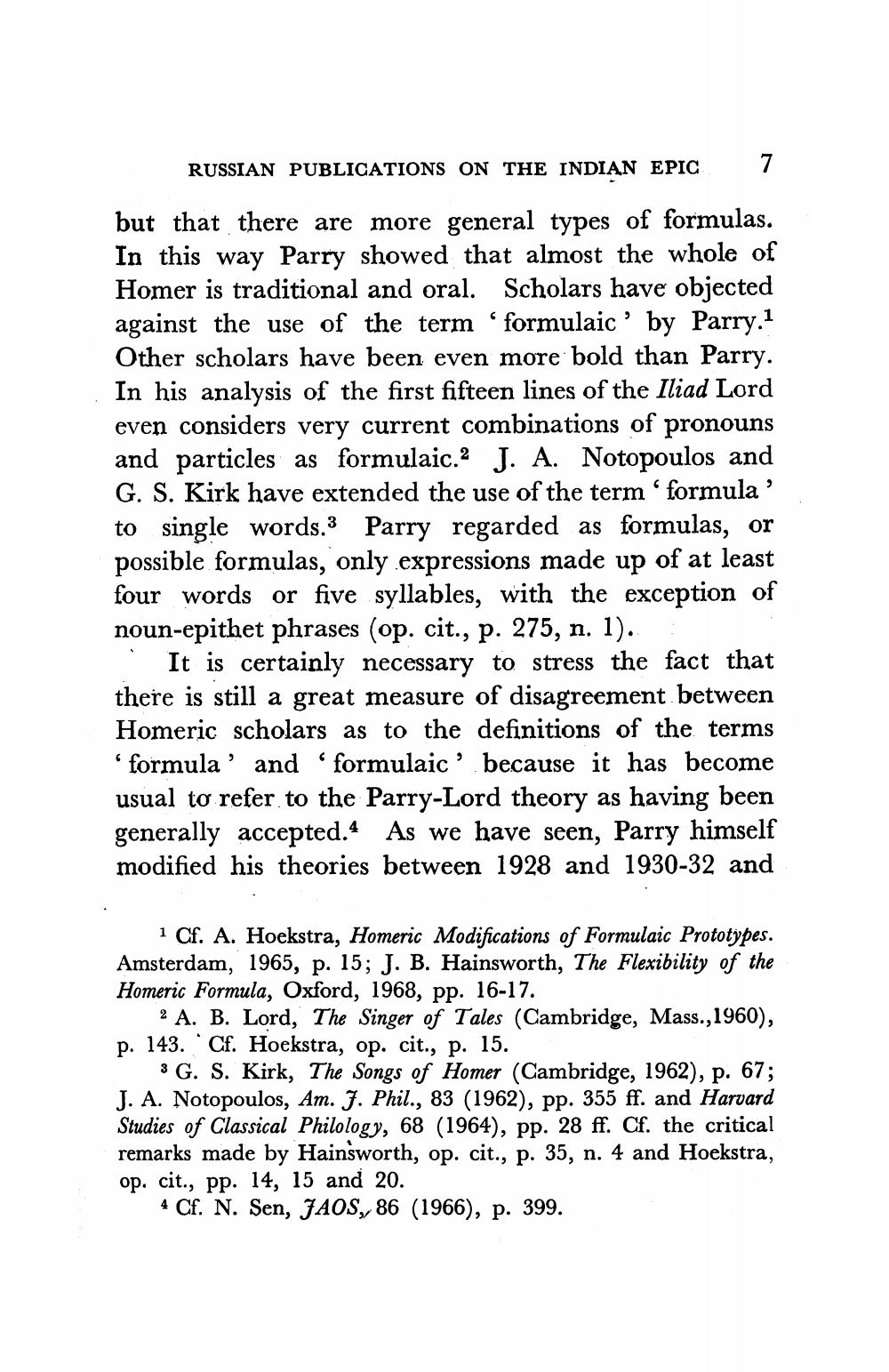________________
RUSSIAN PUBLICATIONS ON THE INDIAN EPIC
7
but that there are more general types of formulas. In this way Parry showed that almost the whole of Homer is traditional and oral. Scholars have objected against the use of the term 'formulaic' by Parry.1 Other scholars have been even more bold than Parry. In his analysis of the first fifteen lines of the Iliad Lord even considers very current combinations of pronouns and particles as formulaic.2 J. A. Notopoulos and G. S. Kirk have extended the use of the term 'formula' to single words.3 Parry regarded as formulas, or possible formulas, only expressions made up of at least four words or five syllables, with the exception of noun-epithet phrases (op. cit., p. 275, n. 1).
It is certainly necessary to stress the fact that there is still a great measure of disagreement between Homeric scholars as to the definitions of the terms ' formula' and 'formulaic' because it has become usual to refer to the Parry-Lord theory as having been generally accepted. As we have seen, Parry himself modified his theories between 1928 and 1930-32 and
1 Cf. A. Hoekstra, Homeric Modifications of Formulaic Prototypes. Amsterdam, 1965, p. 15; J. B. Hainsworth, The Flexibility of the Homeric Formula, Oxford, 1968, pp. 16-17.
2 A. B. Lord, The Singer of Tales (Cambridge, Mass., 1960), p. 143. Cf. Hoekstra, op. cit., p. 15.
3G. S. Kirk, The Songs of Homer (Cambridge, 1962), p. 67; J. A. Notopoulos, Am. J. Phil., 83 (1962), pp. 355 ff. and Harvard Studies of Classical Philology, 68 (1964), pp. 28 ff. Cf. the critical remarks made by Hainsworth, op. cit., p. 35, n. 4 and Hoekstra, op. cit., pp. 14, 15 and 20.
4 Cf. N. Sen, JAOS,, 86 (1966), p. 399.




